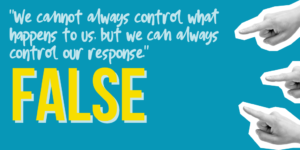This morning, I’m thinking about two men. In my head, I call them Dreamboat and Cutie Boy. They are members of an Entrepreneurship group I participate in, and they are, in fact, as attractive as my nicknames for them would suggest.
They are also partners in business, so I sort of think of them as a duo, like John and Marsha, or Captain and Tenille.
But this is primarily about Cutie Boy.
So, Cutie Boy is pretty curios about this whole “kinky dating” thing, and asks questions.
Which I encourage.
First, because I like talking to him and looking at him. I’m a pervert like that.
Second, because I like to think that the more matter-of-fact and approachable I am in any situation about what I do, the more normal it seems. Not as “freaky-scary” to the vanillas (or not-quite-so-vanillas).
So, he says, “Do people’s careers make a difference in how they kink?” (I’m paraphrasing.)
I and Selene both responded, “Often, yes, but not in the way you might think.” And I explained that many people who take charge in their careers prefer to submit in their personal life or vice versa, and some people are just as dominant or submissive in their entire life.
He stopped to think for a moment, then said, “So the ones who are like that all they time, and they more real?”
Which is a fair question.
I immediately answered, “Nope. Humans are far too complex for generalities like that.”
Here’s what I mean, and how I explained my views on leadership to him:
People are bundles of contradictions and a myriad of motivations.
Let’s take leadership for example. People want to lead for different reasons.
- They get off on the power.
- They are incredibly capable and efficient.
- They view it as a service, and step up when they are needed.
I’m sure there are more reasons, but this is what I thought of at the time.
I told him that leaders probably often have more than one reason.
“So, if one person is a leader because they love having that power, and another is a capable person who loves to provide leadership, which is better?”
He said “probably the second.”
I said, “Which is more ‘true’? Or which is more authentic?”
He said, “Neither, really.”
Yup.
Which is why I don’t think lifelong dominants are more real than switches, or why I think those who are more powerful in their daily lives are any more or less effective at submitting than anyone else.
People are people. Amazingly complex, interesting, conflicted, beautiful…
And I had the all the pleasures of looking at Cutie Boy, discussing two of my favorite topics (kink and business), and connecting through communication all in one go.
Not a one of those things has anything to do with whether my leadership is “real” or “authentic” or “true,” but every one is part of my leadership self.
What are your thoughts on leadership?
What makes for a good leader/dominant. Is there anything besides their actions that (for you) signal someone who might be a step above the others?










2 Responses
A good leader is someone who cares and provides for his/her people. A good leader takes time to get to know their people, their dreams, hopes, strengths, and weaknesses. Leaders make sure their peoples’ needs are met and they are equipped for what is needed. A good leader also leads their people into new experiences or territory to help them grow, give them a different perspective. These are a few things that go into making up a good leader at least for me.
I agree. There are a myriad of things, and even one small piece missing makes the whole thing go awry.